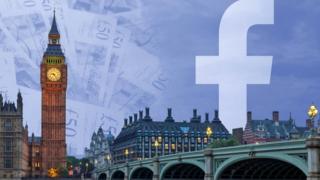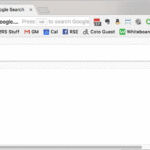Anonymous Facebook ads urge voters ‘to bin Chequers’
 Image copyright
Image copyright
Getty Images/Facebook
Political groups have been spending increasing amounts of money on Facebook adverts
An anonymous website has been using Facebook adverts to encourage British voters to email their MP and urge them “to bin Chequers” and back Brexit.
Evidence given to the government’s fake news inquiry found that a site called Mainstream Network had spent more than £250,000 on the pro-Brexit campaign.
No information is available to say who owns or funds Mainstream Network.
It comes as Facebook announced new rules around political advertising – and its funding – earlier this week.
The site now requires political advertisers to prove their identity and that they are based in the UK, before they can run political adverts.
It also requires them to publicly declare who paid for the adverts before they can run.
Damian Collins, chairman of the Commons culture select committee, said: “Here we have an example of a clearly sophisticated organisation spending lots of money on a political campaign, and we have absolutely no idea who is behind it.”
“The only people who know who is paying for these adverts is Facebook,” added Mr Collins, whose committee has been investigating so-called fake news.
Mr Collins, and fellow committee member Paul Farrelly, are among many MPs whose constituents have been targeted by the Facebook ads.
‘Deliver full Brexit’
Campaign group 89up, which uncovered the digital adverts and shared their analysis with the select committee, say the adverts are designed “to specifically influence MPs”.
When clicked on, the advert takes users to a page on their local constituency and MP. Another click generates a pre-written email to their MP, demanding they “tell the prime minister to bin the Chequers deal” – Theresa May’s Brexit proposal set out at her country residence Chequers – and to “deliver full Brexit”.
The email also adds Mainstream Network into the blind address field, meaning the website receives a copy of the user’s message.
Researchers at 89up estimate that the Mainstream Network has spent up to £257,000 to promote posts across the social network, potentially reaching almost 11 million people in the process.
It also suggests the practice of copying in Mainstream Network to the emails may result in a GDPR breach.
Facebook faces its first test
Analysis by Rory Cellan-Jones, BBC technology correspondent
Last week, Facebook launched its new transparency code for political advertising in the UK.
Now that code, which is meant to show just how ads are targeted and who is paying for them, faces its first test. The system also requires any organisation wanting to place a political advert to provide proof of their identity and location.
But here’s the problem – the “chuck Chequers” ads were posted before the code came into effect. Search the new Facebook archive of UK political ads and you won’t find anything from the Mainstream Network.
But even in the future the identity of organisations paying for ads could remain murky to Facebook users – a label saying “Paid for by the Mainstream Network” will not reveal much about the origins of the money spent.
The “chuck Chequers” campaign could however be of interest to two regulators. The Electoral Commission may see this as further evidence that it needs more powers to force political advertisers to reveal their identities, and the Information Commissioner will want to examine any breach of the new GDPR data rules.
And for one man with a great interest in both politics and social media this all comes at a tricky time. Former deputy PM Sir Nick Clegg starts his new job as Facebook’s global communications chief on Monday – instead of escaping the politics of Brexit he will find it on the top of his in-tray.
“While debate on one of the central issues facing our country is part of a thriving democracy, there is an important question of where campaigning stops and political advertising starts,” said Mr Collins.
“Facebook has recently announced a set of changes to increase transparency around political advertising on its platform.
“This example offers Facebook an opportunity to show it is committed to making that change happen – if you are targeted with a message or asked to lobby your MP, you should know exactly who is behind the organisation asking you to do it.”
Facebook’s Rob Leathern said “new requirements” would be coming into effect on 7 November, meaning political adverts on the site would be obliged to carry a message saying who paid for it.
“Advertisers will need to confirm their identity and location through an authorisations process and accurately represent the organization or person paying for the ad in a disclaimer.
“These steps must happen or the advertiser will be prevented from running ads related to politics on Facebook,” said Mr Leathern, director of product management.
“We know we can’t prevent election interference alone and offering more ad transparency allows journalists, researchers and other interested parties to raise important questions.”



